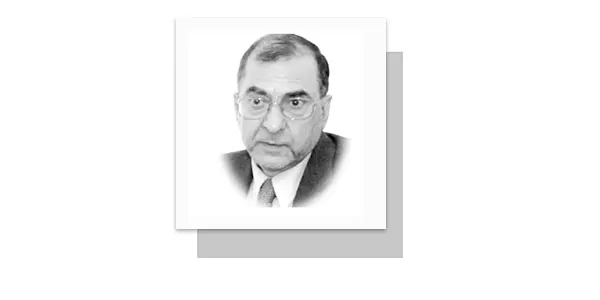A memorial service has been held just for Marguerite Helen Velte Hasbrouck at Houghton Chapel, Wellesley College Campus, Massachusetts, US. It began with ‘concert and meeting for worship in the manner of Friends’ (Quakers). For out of state friends and those unable to join in person, the memorial concert and meeting was made accessible on Zoom. Hasbrouck was born on 30 October 1933, in Lahore, Punjab (today Pakistan), where her father was a professor at Forman Christian College.
Marguerite was a strong advocate and great defender of voiceless people of Kashmir. She had visited the Valley of Kashmir more than dozen times and the last time in 1989 along with her son, Edward Hasbrouck. They later published a report in ‘Peacework’ Magazine, in September 1990, “As it happened, our arrival in the Kashmir Valley in 1989 coincided with the outbreak of the latest stage of the Kashmiri nationalist struggle. It started mainly as a movement for self-determination and its tactics were those of non-violent civil disobedience. But as the Indian government responded with crude repression, it increasingly became a campaign for human rights and simple survival. An army of half a million Indian soldiers, police and spies now occupies most of Kashmir and enforces martial law over ten million Kashmiris.”
I knew Marguerite for over 35 years. Alas, she left us on at the age of 90. It was on 22 October 1990, that she first wrote to me and expressed her interest to attend a demonstration that was held in front of the United Nations on 27 October 1990 — the day when India occupied Kashmir in 1947. She later sent me her passport along with completed application for getting visa to visit the Valley of Kashmir again.
Marguerite wrote a letter to her Senator from Massachusetts, Senator Edward Kennedy on 21 October 1990 and copy to me in which she mentioned that “The evidence as has managed to slip by strong and consistent Indian government attempts to bury it shows clearly that India is guilty of horrendous human rights abuses in Kashmir, where it is engaged in deliberate genocide of a people in order to control a region that was promised self-determination by India and Great Britain at the time of partition in 1947 and later by the United Nations.”
When Raisa Gorbachev and Barbara Bush visited Wellesley College to attend graduation ceremony in 1990, Marguerite and her son, Edward Hasbrouck were standing in front of the entrance of the college, holding placards, “Kashmiris demand right to self-determination.” When Hillary Clinton was invited to give commencement address at Wellesley College in 1992, Marguerite organized a ‘Vigil for oppressed people of Kashmir.”
When Harvard University, Centre for International Affairs organized a lecture for George Fernandes, then the Federal Minister of India, on October 12, 1990, she attended the event along with her colleagues and took the notes which later she sent to me. She wrote at the end of her type written six pages, single space notes, “These are rough notes, roughly transcribed.” But when I compared these notes with the official 28 pages, double space transcript of Harvard University, they were as accurate as it could be.
Marguerite in particular highlighted the shining example of pluralism and diversity in Kashmir as mentioned by Mr Fernandes in these words, “I was last in Kashmir a fortnight back…One point which people constantly make and which, I believe, needs to be made is that the property houses, orchards owned by the Pandits have not been damaged in the last one year. The apples, for instance, from these orchards, have been plucked and sold and the money has been deposited. The houses have been looked after as they were earlier by Muslim neighbours.” (Harvard U. Transcript page 8, Marguerite transcript, page 2.)
Both Marguerite and Edward wrote a joint article, entitled, “Kashmiri people struggle for human rights and self-determination.” They elaborated that “Non-violent demonstrations by as many as a million people are repeatedly broken up with automatic weapons fire. Thousands are wounded; hundreds killed. Those trying to aid the wounded are fired on, beaten, arrested. Tienmen Square? Kashmir. Half a million soldiers and paramilitary police seal off the region as a “disturbed area”. They are authorized to shoot to kill at any public gathering of more than four people, to arrest and detain people without charges and to destroy property without judicial process. Houses, shops and entire villages are burned on mere suspicion. South Africa? Kashmir. Twenty-four-hour curfew is imposed on entire cities for as long as two weeks without break. The economy shuts down. Food and medicine grow scarce. In house-to-house searches under curfew, “subversives” are beaten, raped, robbed, tortured, disappeared. Some prisoners die under torture, others in staged “encounters” or “escape attempts”. Palestine? Kashmir.”
“Neither India’s reign of terror, nor that a few Kashmiris have begun to respond to the human rights violations committed by Indian army in kind, are as surprising as that the overwhelming majority of Kashmiris — ordinary people and activists alike — remain committed not merely to the goal of freedom but to the tactics of non-violence. Whenever the curfew is lifted or defied, Kashmiri crowds march on the U.N. offices in Srinagar to present petitions and raise slogans for a plebiscite, they highlighted. Marguerite and Edward warned that historical and political disputes give India more layers of false excuses for its conduct in Kashmir than we could begin to deal with here. But the bottom line is that there is NO excuse for these increasingly genocidal means of repression, NO excuse for the colonialism they serve. It’s that simple. The people of Kashmir will never forget the selfless contribution and the tireless efforts of Marguerite Helen Velte Hasbrouck. Her efforts will remain forever a milestone in the history of the freedom struggle of Kashmir. May her soul rest in peace! Ameen.
—The writer is the Secretary General, Washington-based World Kashmir Awareness Forum.
Email: gnfai2003@yahoo.com
Views expressed are writer’s own.










